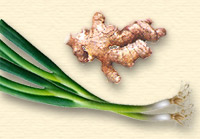|
|
Living environment
 |
Attention should be paid to climatic changes. In the winter and autumn especially, it is important to avoid staying in environments with extreme temperature changes. Suitable clothes should be worn to prevent the invasion of exogenous evils.
|
 |
Exposure to stimulants should be avoided. These include irritant substances such as odor or dust. The living environment (home) should be cleaned regularly. Dry, sunny places should be chosen to live in whenever possible. |
| |

Clean and warm environment
|
 |
Moderate and regular exercise will help strengthen the body's resistance. |
| |
 |
|
| |
Dietary management
From a TCM perspective, foods and drugs come from the same source, so foods can have similar properties and functions to those of drugs. Foods and drugs are classified into four characteristics and five tastes. The four characteristics refer to the healing nature of Chinese herbs. These properties are cold, hot, warm and cool. The five tastes are acrid, sweet, sour, bitter and salty.
 |
During attacks of allergic rhinitis certain foods should be eaten more frequently. These include foods that are acrid tasting, foods that promote warmth and sweating, and foods that facilitate the lung's dissemination functions. These foods help to eliminate the exogenous evils. Such foods include spring onions, ginger, or cilantro (fresh coriander). |
| |

Spring onions and ginger help to eliminate the exogenous evils |
| |
|
 |
In general, excessive consumption of cold, greasy, and spicy foods should be avoided. Known sea-food or other foods that trigger the disorder should likewise not be eaten. |
| |

Avoid known foods that trigger the disorder such as shrimp |
| |
|
 |
Foods which will tonify, eg, Chinese date, walnut, Chinese yam, dried mushrooms and mutton should be eaten. These foods help to invigorate the qi, cure deficiency, tonify the spleen, build up the body's resistance. |
| |
 
Dried mushroom and walnut help to invigorate qi and built up resistance |
| |
|
|
|
| |
|